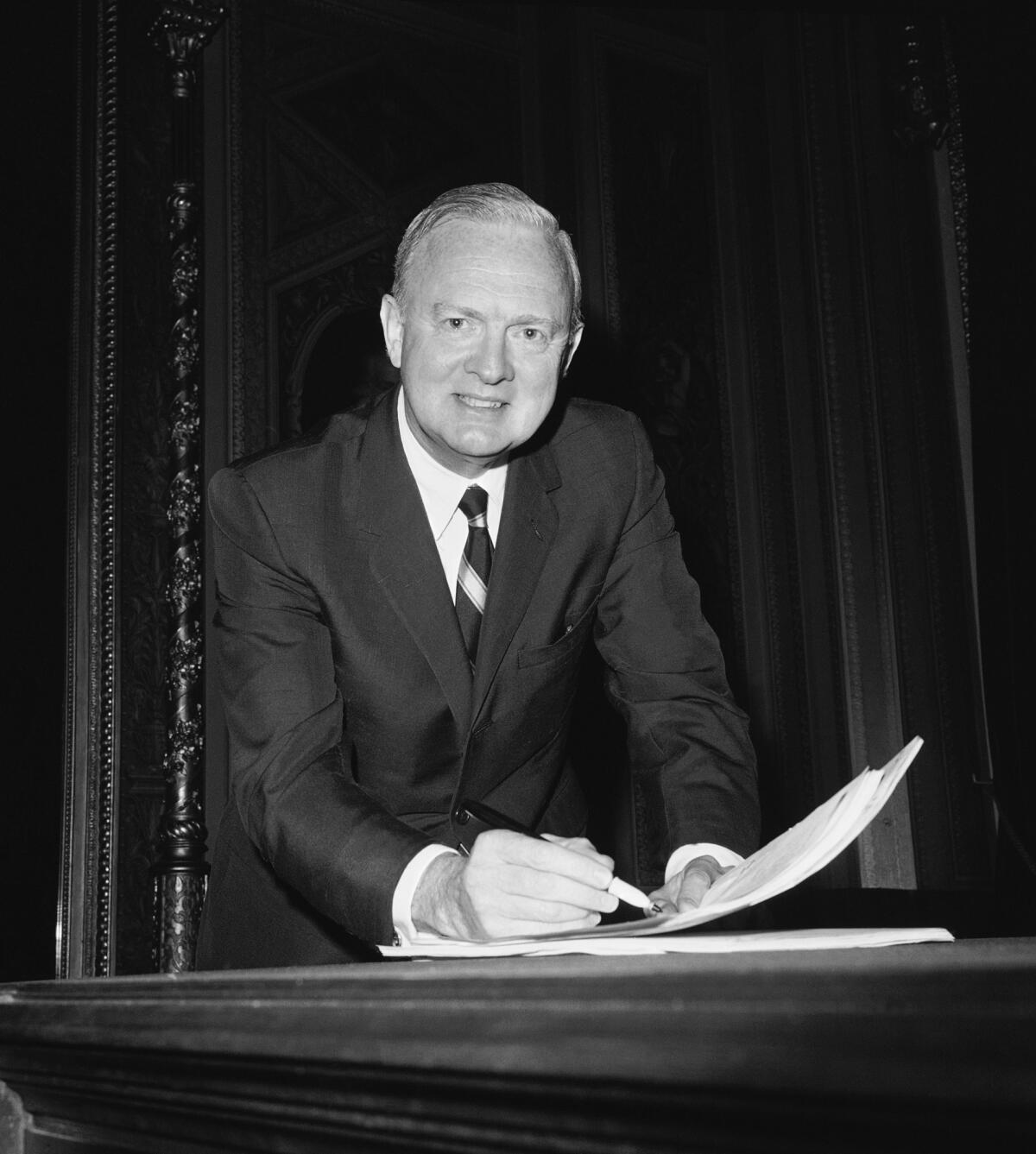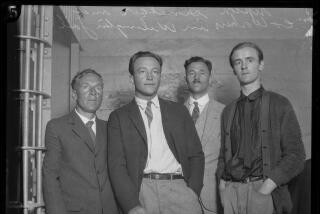Harry F. Byrd Jr. dies at 98; former Virginia senator

- Share via
Former Virginia Sen. Harry F. Byrd Jr., the Democrat-turned-independent who began his career as a staunch segregationist and preached fiscal restraint in Washington long before it became fashionable, died Tuesday, his family said. He was 98.
Byrd served 17 years in the U.S. Senate, replacing his powerful father, Harry Flood Byrd, a U.S. senator from 1933 until failing health forced him to retire in late 1965. Virginia Gov. Albertis Harrison appointed the younger Byrd, a longtime state senator who, like his father, supported segregation.
In 1966, Byrd won a special election for the remaining years of his father’s term. Switching from Democrat to independent, Byrd won reelection in 1970 and 1976.
Even as an independent, Byrd got more votes than the Democratic and Republican candidates combined. It was only the second time an independent won a U.S. Senate seat.
“It’s a hard way to run, but if you can win that way it’s the best way to win,” Byrd later said. “You’re totally free of obligations to anybody. … You don’t have to follow a party line.”
He made a career of preaching the value of fiscal restraint. He claimed Congress could balance the budget if it could just hold annual spending increases to the 3% to 5% range and even criticized President Reagan’s military buildup as “giving the Pentagon the impression it has a blank check.”
When he retired in 1982, Byrd said he was leaving public service with his convictions and integrity intact, but with regret that “Congress refuses to obey its own law which mandates a balanced budget.”
Both Byrds supported Virginia’s stand against desegregation, including the decision to push “massive resistance” — even school closings — to fight the landmark 1954 Supreme Court decision Brown vs. Board of Education. In 1956, Byrd had called the ruling an “unwarranted usurpation of power” by the court.
He told the Washington Post in 1982 that he had “personally hated” to see schools close, but even those many years later he didn’t disavow massive resistance and suggested it helped the state avoid racial violence.
“It is one thing to sit here in 1982 and say what was done in 1954 was a mistake,” he said. “It may or may not have been, because you have to look at it in the context of the times. When you have to make a very dramatic change, sometimes, most times, that needs to be done maybe over a period of time and not abruptly.”
Byrd was born in Winchester, Va., on Dec. 20, 1914. His first memory of politics was at age 10 during his father’s campaign for governor.
“He would use me as a sounding board, thinking out loud,” Byrd said. “I didn’t always know what he was talking about, but it got me interested in politics.”
Byrd graduated from Virginia Military Institute and the University of Virginia and served as a lieutenant commander in the Navy during World War II.
The Virginia Byrds were not related to the former longtime Sen. Robert Byrd of West Virginia, who died in 2010.
More to Read
Start your day right
Sign up for Essential California for the L.A. Times biggest news, features and recommendations in your inbox six days a week.
You may occasionally receive promotional content from the Los Angeles Times.






